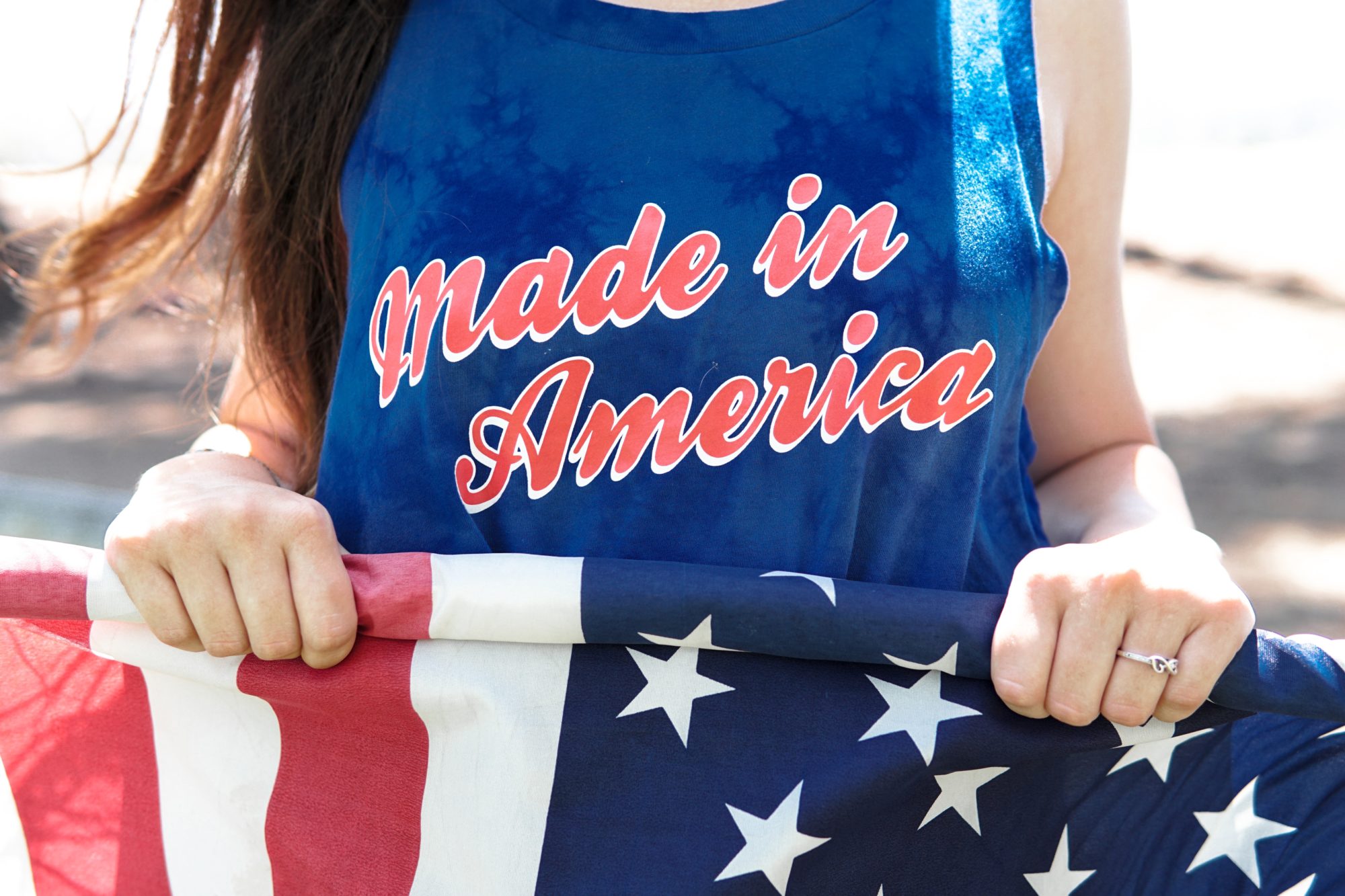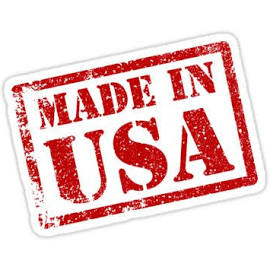Most Recent News


Popular News




Democrat, Republican, and Industries all agree on one thing: Made In America stickers suck. How do we fix them to make them viable again?
If there ever was an actual bipartisan idea: it is this. Stop labeling things “Made in America” when they are 99.9% made in China and then shipped to America just to have a single person haphazardly toss on a “Made in America!” sticker.
WASHINGTON (Reuters) – U.S. President Donald Trump is looking for ways to defend American-made products by certifying legitimate U.S. goods and aggressively going after imported products unfairly sporting the “Made in America” label, the White House said on Tuesday.
Trump, who campaigned on reviving the U.S. manufacturing sector, vowed on Monday that his administration would crack down on “predatory online sales of foreign goods” hurting U.S. retailers.
On Wednesday, Trump will discuss with small- and medium-sized manufacturers how to certify their products and keep out foreign counterfeits, a senior administration official told reporters. Their products include gutter filters, flags and pillows.
“There’s just too many examples of foreigners slapping on ‘Made in America’ labels to products and the worst insult is when they do it after they have actually stolen the product design,” the official said.
The United States loses about $300 billion a year to theft of intellectual property ranging from semiconductors to jeans, the official said.
A Senate Democrat is calling on the Federal Trade Commission (FTC) to investigate claims that retailers are fraudulently mislabeling foreign products in a bid to take advantage of American consumers’ willingness to pay more for American-made goods.
In a letter to FTC Chairwoman Edith Ramirez, Sen. Chris Murphy (D-Conn.) said businesses are only allowed to include a “Made in USA” label if “all or virtually all” of a product’s parts, processing and labor are of U.S. origin.
“This standard applies to both manufacturers and retailers, who may include additional product origin labels after manufacturing is complete,” he said in the letter. “I have particular concern over fraudulent labels that are placed on products by retailers on outer packaging or in advertising for products.”
The letter comes after an investigation by the nonprofit Truth in Lending found 200 examples of mislabeled foreign-made products at Walmart, which ranged from disposable spoons to children’s toys and cosmetic sponges, as reported by NBC Connecticut.
American manufacturers are calling on the Federal Trade Commission (FTC) to crack down on foreign companies that are falsely labeling their products as “Made in America.”
“When foreign manufacturers slap a Made in USA label on their goods, they are trying to game the system by taking advantage of the clout the label provides without doing any of the hard work. They shouldn’t get away with this,” the Alliance for American Manufacturers wrote on its website. “That ‘Made in USA’ label carries a lot of clout and can be a big selling point.”
The group says the government isn’t doing enough to punish companies fraudulently labeling their products this way.
Traditionally, guilty companies are only asked to pay after a second violation.
The FTC found three cases where products made in China were falsely labeled as produced in the U.S. Among those products were military-themed backpacks manufactured by Sandpiper/PiperGear USA – which were actually being sold to military bases overseas. Hockey pucks from Patriot Puck were found to be imported from China and mattresses from Nectar Sleep were found to be made in China – despite being branded otherwise.
The companies were not penalized beyond being asked to stop the false marketing practice.
So why are we even still using them? They clearly are not working… at all.
At this point, do we even need to debate it? It seems like everyone is already on board.

The solution is rather simple. Instead of even dealing with a “Made in America” sticker, have a % made in America disclosure requirement. Yes, requirement. IE: On all goods and products.
If the good is fully made and assembled in China, only for a U.S. factory to put it together, it’s clear they would be insanely low on the “Made in America” percentage.
We could set distinct and clear markers for each percentage: from 0% to 100% (in my mind using 10% increments, but I’m negotiable here!).
If the good is sourced, built, and sold all within American borders while the company is fully American (yes, including customer service): they get the 100% American designation. That would incentivize a lot of additional purchases for this specific producer while also incentivizing further investment in our own manufacturing/home based economy. Yes, even if it costs 10 cents more for the free traders fanatics [1][2].
Now consider if we have the same type of producer but without American customer service. Using my rough idea we could consider that a 90% American Made good, for a random example. Still pretty amazing.
If they take inputs from outside the country (such as raw materials) but otherwise fully manufacture, assemble, reside, and distribute from an American based company we could put that at 80%. I’d consider inputs being more egregious to lose overseas than customer service and thus more requiring to face a larger deduction. But again, this is just an idea not a polished methodology.
Each notable foreign resource loses a sizeable percentage based on whatever criteria we decide to utilize. Then, consumers actually know how American it is.
Rather than these worthless stickers. They sure as hell don’t help us understand.
If we had predefined levels (whether using my methodology or another setup), every consumer could instinctively know what 90% means and the difference between a 50% versus 70% American Made product.
Knowledge is key and consumers could then act accordingly. To ensure it actually works: any company that misrepresents these disclosure requirements must face from severe fines up to exclusion from the marketplace.
What’s your thoughts on this system?
If you enjoyed this article, bookmark the website and check back often for new content. New articles most weekdays.
You can also keep up with my writing by joining my monthly newsletter.
Help fight the censorship – Share this article!

(Learn More About The Dominion Newsletter Here)